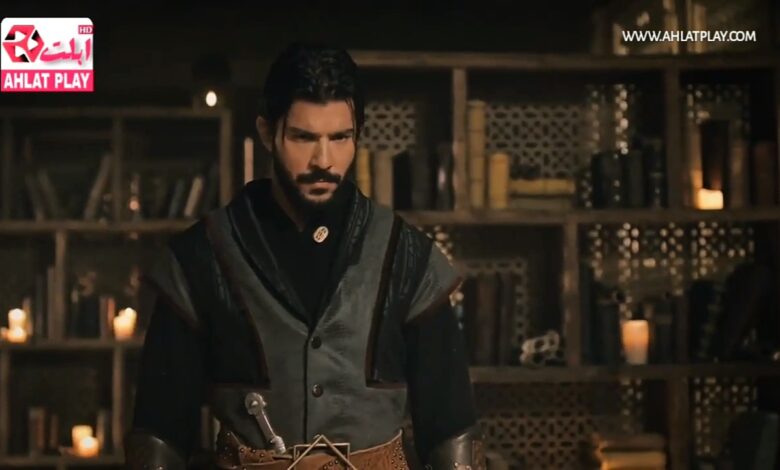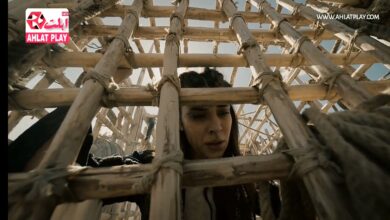Mevlana Celaladdin Rumi Season 3 Episode 1 With Urdu Subtitles

Mevlana Celaladdin Rumi Season 3 Episode 1: An Emotional Beginning
Season 3, Episode 1 of Mevlana Celaladdin Rumi, the historical drama based on the life and teachings of the great Sufi mystic, Mevlana Rumi, opens with a deep, emotional narrative that delves into the psychological and emotional turmoil that Mevlana faces in his personal life. This episode marks the beginning of a new phase for Rumi, one that not only explores his spiritual journey but also his inner struggles. The episode highlights several key elements that show the evolving dynamics of Rumi’s life and the surrounding characters.
Mevlana Rumi Depressed
The opening scenes introduce us to a Mevlana Rumi who is deeply depressed. After the tragic death of his beloved mentor and friend, Shams Tabriz, Rumi finds himself overwhelmed by grief. This emotional weight has been reflected throughout his poetry, and now, in this season, it is becoming more apparent in his personal life. The episode vividly portrays Rumi’s struggle to find purpose and direction. He is consumed by sorrow and the quest for answers to his inner turmoil.
As a man who once radiated divine wisdom and insight, Rumi now faces the challenge of reconciling his deep sense of loss with the spirituality that he once so confidently espoused. His depression is not just an emotional response; it is a spiritual crisis that is eating away at him. This battle is central to his character’s evolution in this season. Rumi’s depression presents an obstacle that challenges his faith and forces him to explore new spiritual paths, while his followers, who look up to him for guidance, find themselves helpless in providing the answers he seeks.
Afsoon Marries Baiju Noyan
Another significant storyline in this episode is the marriage of Afsoon and Baiju Noyan. Baiju, a known Mongol warrior, has had a turbulent relationship with the Seljuk Empire, and his personal life has always been marked by conflicts of interest. Afsoon, on the other hand, is a character with immense political savvy and wit. She has often played the role of a negotiator and a strategist in the complicated political landscape of the era.
Her marriage to Baiju Noyan introduces an element of tension and intrigue. The union of Afsoon and Baiju is not just a personal affair, but a political maneuver that could shift the balance of power in the region. The episode carefully weaves in the complexities of their relationship, highlighting how personal decisions are often influenced by the larger forces of politics and power during this turbulent time in history. Afsoon’s marriage to Baiju is a game-changing moment in the series, setting up new alliances and creating a ripple effect that will affect the future plotlines.
Isfihani as the New Vazir
In a major political development, the episode introduces Isfihani as the new Vazir. Isfihani’s appointment is not only a significant political shift but also an indication of the growing tension in the royal court. His presence at the palace raises many questions, especially regarding his true loyalties. While Isfihani presents himself as a capable and intelligent statesman, the audience is left to wonder about his hidden motivations. His role as the Vazir introduces a new layer of political intrigue into the narrative, as his decisions are likely to have far-reaching consequences on the Seljuk Empire and its stability.
Isfihani’s character adds an element of unpredictability to the episode. He is not just a traditional leader but a figure who is determined to make his mark in the history of the empire. The episode lays the groundwork for his complex character arc, showing that Isfihani’s influence will significantly impact the power dynamics within the court. His rise to power may also have consequences for the relationship between the Sultan and the prince, as well as the fate of key characters like Rumi.
Sultan Misbehaves with His Prince
The episode takes a darker turn when the Sultan misbehaves with his own son, the prince. The Sultan’s behavior towards his son is an example of the internal family conflicts and political corruption that often permeate royal courts. The tension between the Sultan and his son has been building for some time, and this episode brings it to a boiling point. The Sultan’s actions are a sign of his increasing desperation to maintain control over his kingdom, even if it means betraying his own family.
This family conflict is not just a personal dispute; it is also a reflection of the larger societal and political issues at play. The Sultan’s cruelty towards his son is emblematic of the growing power struggles within the court, where loyalty is tested and relationships are put under strain. The prince, who had once been the heir to the throne, now finds himself caught in a web of manipulation and power games, leading to a further deterioration of trust within the royal family.
Sheyh Walid in Tabriz
Another important development in Episode 1 of Season 3 is the arrival of Sheyh Walid in Tabriz. Sheyh Walid is a spiritual figure who has the potential to influence the course of Rumi’s spiritual journey. His arrival is a pivotal moment for Rumi, as it forces him to confront his own feelings of doubt and depression. Sheyh Walid’s presence serves as a catalyst for Rumi’s eventual reconciliation with his grief, but it also brings with it challenges and new questions.
Sheyh Walid is presented as a character who embodies deep spirituality and wisdom. However, his own experiences and struggles are not without their complexities. His relationship with Rumi is one that holds promise for spiritual healing, but it is also fraught with the potential for conflict and differing philosophies. The tension between the two figures plays out as the episode progresses, setting the stage for the spiritual evolution of Rumi’s character.
Alauddin is More Depressed
Finally, the episode explores the character of Alauddin, who is shown to be even more depressed than before. Alauddin’s emotional struggles mirror those of Rumi, but in a different context. While Rumi grapples with his spiritual crisis, Alauddin faces personal conflicts that are driving him further into despair. The episode portrays Alauddin as a man who is losing hope in both himself and the world around him. His depression becomes a central theme of his character arc, and it serves as a parallel to Rumi’s own journey.
Alauddin’s depression also highlights the broader emotional landscape of the series. Many characters, including Rumi, are forced to confront their own vulnerabilities, and this emotional depth adds complexity to the overall narrative. Alauddin’s journey will undoubtedly play an important role in the unfolding events of the series.
Conclusion
Season 3, Episode 1 of Mevlana Celaladdin Rumi is a powerful opening that sets the tone for the season ahead. It delves into the emotional and spiritual struggles of the characters, particularly Rumi, who faces overwhelming grief and depression after the loss of Shams Tabriz. The episode also introduces new characters and political developments that will shape the future of the series. From the marriage of Afsoon and Baiju Noyan to the rise of Isfihani as the new Vazir, the episode lays the groundwork for the complex relationships and power dynamics that will unfold. As the season progresses, viewers can expect more emotional depth, spiritual exploration, and political intrigue.
This episode beautifully sets the stage for what promises to be a season of introspection, emotional turmoil, and spiritual growth. It gives viewers a glimpse into the depths of Rumi’s soul while also shedding light on the surrounding characters and the political landscape of the time. The journey of Rumi, Alauddin, and the other key figures is far from over, and this season promises to explore new dimensions of their characters, their struggles, and their triumphs.



